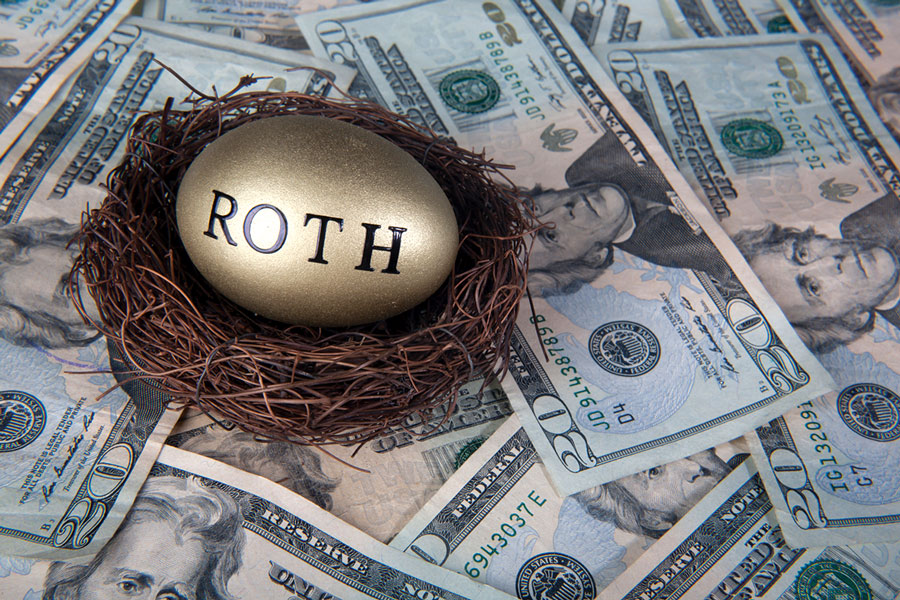

With a confluence of events, from spiking inflation and haphazard government spending policies to geopolitical unrest, driving equity markets lower, financial advisers might be able to provide some value-add by turning their clients’ attention toward the upside of Roth conversions during a down market cycle.
“If you can convert an amount at a low value and know it has a potential to increase in the future, why wouldn't you want to pay the present low tax to do so?” said Rose Swanger, principal at Advise Finance.
“Having said that, it takes time and effort to monitor the market condition to proceed with each Roth conversion,” Swanger said. “It's not a slam-dunk move for DIY investors, especially for people who have a substantial amount of IRA (assets), which may take years to do the Roth conversion maneuver. Last but not least, there's the tax reporting. Many people who convert during the year tend to forget about that.”
It is true that converting a traditional retirement savings account to a Roth isn't as simple as falling off a log, but that’s where financial advisers provide their value, while also giving clients something to think about beyond a stock market nestling into correction territory.
“We regularly initiate more than 100 Roth conversions annually, and it has increased since the Secure Act,” said David Demming, president of Demming Financial Services.
The tax bills that come with Roth conversions can sometimes discourage clients, but with the S&P 500 Index down more than 10% from the start of the year and the Nasdaq Composite Index down nearly 18%, more advisers are presenting clients with the Roth option.
Scott Bishop, executive director of wealth solutions at Avidian Wealth, said he appreciates Roth IRAs for giving clients “different tax buckets to draw from in retirement.”
Bishop generally advises dollar-cost averaging for Roth conversions, but he does support a “buy on dip” conversion strategy into market weakness.
“I suggest that the converted funds, at least short term, should be allocated to stocks or ETFs that may recover faster given their outlook,” he said. “I did that on weakness mid-2021 by buying into an energy ETF for clients.”
Bradley Lineberger, an investment adviser at Seaside Wealth Management, also sees current conditions as an opportunity to help clients navigate a tax hit.
“This is an excellent time for Roth conversions,” he said. “The market is down so the tax liability is lower. The eventual market recovery will happen when the assets are in the Roth and will help to expand that account.”
Zachary Bachner, a financial adviser at Summit Financial, employs a bit of investor psychology when talking to clients about Roth conversions during down markets.
“If you are already performing conversions annually, pullbacks can give you an opportunity to convert more of your qualified funds,” he said. “While the stocks are down, you can convert the same dollar amount of qualified money, but you would be converting a larger percentage of the qualified funds.”
Dennis Nolte, vice president of Seacoast Investment Services, takes a contrary view, saying that “decreased values alone don’t necessarily drive the decision to convert.”
Nolte said considerations should include the client’s marginal tax bracket now and at retirement, and whether there's enough cash available to pay the lump sum tax bill.
Read next: How taxation is handled on Roth conversions
“All things being equal, if you were on the fence about it, the decreased values should help push someone toward a more comfortable decision to convert,” he said.
Randy Burns, founder of Model Wealth, sees the advantages of converting while markets are down but also points out how closely the strategy resembles timing the market.
“It’s obviously a better time right now for Roth conversions than Jan. 1, however, the very best time for any conversion is the very bottom of markets,” Burns said. “Until someone finds a crystal ball, that’s impossible to know.”

Wealth management unit sees inflows of $23 billion.

Deal will give US investment bank a foothold in lucrative European market.

New report examines the impact that the initiative has had on philanthropy.

Few feel confident that they will meet their retirement goals.

Catch-up contributions, required minimum distributions, and 529 plans are just some of the areas the Biden-ratified legislation touches.
Orion's Tom Wilson on delivering coordinated, high-touch service in a world where returns alone no longer set you apart.
Barely a decade old, registered index-linked annuities have quickly surged in popularity, thanks to their unique blend of protection and growth potential—an appealing option for investors looking to chart a steadier course through today's choppy market waters, says Myles Lambert, Brighthouse Financial.
